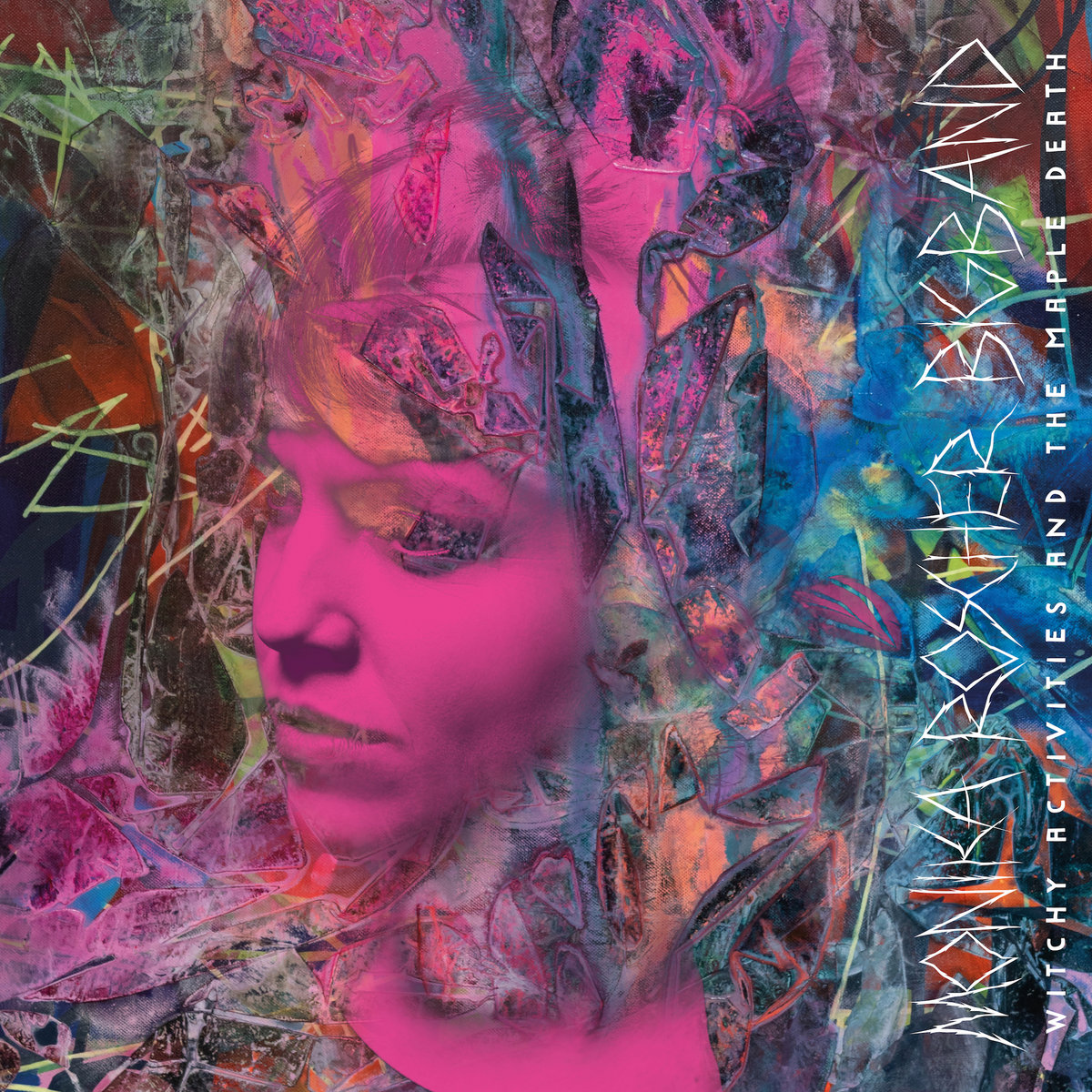
Band: Monika Roscher Bigband | Album: Witchy Activities and the Maple Death | Genre: Progressive rock, Avant-pop | Year: 2023
From: Munich, Germany | Label: Zenna Records
For fans of: black midi, Frank Zappa, UK, Van der Graaf Generator, iamthemorning
When I first had this album recommended to me, I was a bit skeptical. When I think of mixing big-band jazz with rock music, my mind immediately goes to Diablo Swing Orchestra, and I hate Diablo Swing Orchestra. However, the person who recommended this to me is a reader who has given me a number of other good suggestions, including Daniel Rossen’s You Belong Here, so I decided to give this a shot.
I’m glad I did. The massive ensemble assembled by bandleader, guitarist, and vocalist Monika Roscher manages to form amazingly coherent songs from disparate musical ideas. Aside from rock and jazz, electronica, blues, and avant-garde music all get their moments across this sprawling record.
Witchy Activities starts off with the tense pizzicato strings of “8 Prinzessinnen”, its longest individual song. Roscher’s voice is heavily affected and robotic, and it adds to the tight, oppressive atmosphere. Low, staccato brass adds some punch to the ostinato backing. More elements gradually enter. Additional flourishes of brass and haunting, swooping backing vocals add to the disorienting, eerie feel of this song. Around the midpoint of this piece, a saxophone solo barrels in as the backing band grows ever heavier and more claustrophobic. I especially like the way hand percussion is utilized. In the second half of the song, there’s a great trombone solo underpinned by skittering drums and jittery piano.
A lone cello opens “Firebird”, but one by one, more instruments join in. Jazz elements are prominent, but there’s a dramatic cut when the verse starts. It begins as a pared-down vocals-and-guitar passage with smoky cabaret flavors. Electronic percussion adds a strange twist which complements everything quite nicely. The opening passage is revisited throughout this piece, including in the strong finale.
Next is the six-part, 12-minute “Witches Brew” suite. Wonky, Zappa-esque horns open this, and Roscher’s idiosyncratic vocals give this a unique flavor. There’s an irrepressible forward momentum in this passage, and it pulls the listener along. Even when the vocal melody slows down, the backing band keeps things rolling along. The music is tense and taut, as if it’s just waiting to explode. Some release comes in the form of an electronics-backed trumpet solo, and it leads into this suite’s stripped-back second part.
The 18-second third part is disorienting circus music that leads back into a more restrained movement. The brass and droning didgeridoo give this passage a hypnotic, ritualistic feel.The transition to part five is a bit jarring; it’s a slower movement which draws from classical music in its flute and piano arrangements.
The final part of “Witches Brew” jumps right back into the band’s usual high-anxiety tendencies, but it somewhat suddenly shifts into a carnival-feeling cavalcade of brass and crashing drums with swirling, distorted guitars in the background.
“Creatures of Dawn” could almost be mistaken for an alternate-universe Steven Wilson song in its opening moments. As this song progresses, though, it rapidly becomes its own beast. Jazz is prominent, including a plucky acoustic bass solo and modes not often heard in rock music. Some more Wilsonian parallels can be heard throughout, most notably in Roscher’s use of that compressing vocal effect Wilson is so fond of. Though this is a good song overall, it does run a bit long. Some of the instrumental passages could have been trimmed.
The opening to “Queen of Spades” is the slowest the band has moved so far. The tempo is plodding, and Roscher’s distorted guitar lends a lot of weight to this cut. Jazzy brass helps the song pick up the pace a bit, and the occasional effects on the vocals are a nice touch. “Starlight Nightcrash” keeps with the previous cut’s relatively subdued pace and prominent jazz influence, though it does run a bit long.
Brass honks and soars dramatically in the opening of “A Taste of the Apocalypse”. The Trumpet arrangements in particular vaguely hint toward Latin American music. The vocal melody is strong, and the backing instrumentation has a swirling, glimmering quality to it. “The Leading Expert of Loneliness”, meanwhile, has a fittingly bare, isolated atmosphere.
“Direct Connection” has some fun, weird jazz experiments at points, but it’s one of the weaker overall songs on this album. It’s not bad, but it fails to make much of an impact.
The album closes on “Unbewegte Sternenmeere” (“Unmoving Seas of Stars”). Its first half is slow and hazy, but it picks up somewhat in its second half. A jittery organ line and Roscher’s biting guitar make the ultimate conclusion a strong one.
Witchy Activities and the Maple Death is an ambitious, expansive record. It covers a huge amount of territory, and it does it while remaining amazingly focused. Rock, jazz, electronic, and avant-garde elements mingle smartly, and only rarely do individual songs go on for too long. If you’re looking for something strange and distinctive, give this a shot!
Score: 83/100